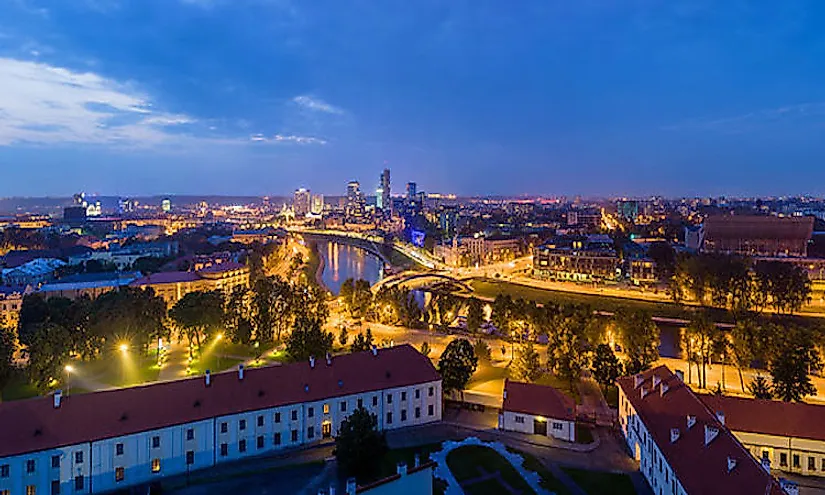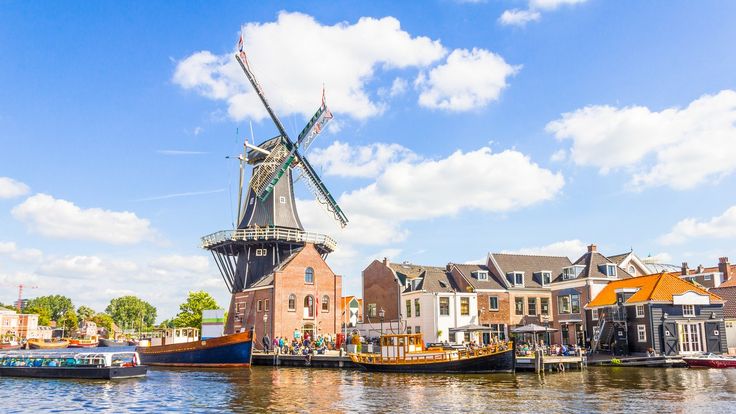Lithuania, a beautiful Baltic country, is rapidly becoming the place of choice for Nigerians who desire to emigrate to work, study, or enjoy a higher quality of life. With a thriving economy, excellent education, and a lower standard of living compared to other European countries, Lithuania has an open door to foreigners.
This article will provide in-depth details of how to relocate to Lithuania as a Nigerian, such as visa options, cost of living, job prospects, cultural expectations, and what to expect on relocation.
Why Relocate to Lithuania?
Before diving into the relocation process, it’s essential to understand why Lithuania is an attractive option for Nigerians:
- Affordable Cost of Living: Lithuania has a relatively low cost of living compared to Western Europe.
- EU Residency Benefits: Being part of the European Union, Lithuania offers a pathway to other Schengen countries.
- Good Job Market: Opportunities exist in IT, healthcare, engineering, and business sectors.
- Quality Education: Lithuanian universities offer high-quality education with international recognition.
- Safe and Welcoming Environment: Lithuania ranks high in safety and provides a peaceful atmosphere for immigrants.
Types of Visas for Nigerians Relocating to Lithuania
As a Nigerian, you will need a visa to enter Lithuania. The type of visa required depends on your purpose of relocation. The most common types include:
1. Work Visa (National Visa D + Work Permit)
If you plan to work in Lithuania, you will need a job offer from a Lithuanian employer and a work permit. The process includes:
- Finding a Lithuanian employer willing to sponsor you.
- The employer applies for a work permit from the Lithuanian Labor Exchange.
- Once approved, you apply for a National Visa (D) at the Lithuanian embassy in Nigeria.
2. Study Visa (National Visa D + Residence Permit)
Nigerians seeking to study in Lithuania must first gain admission into a recognized university. The steps include:
- Applying to a Lithuanian university.
- Receiving an admission letter.
- Applying for a National Visa (D) and residence permit.
3. Business/Entrepreneur Visa
For Nigerians looking to establish or invest in a business, Lithuania offers a business visa if you:
- Register a company in Lithuania.
- Prove a minimum investment (varies by sector).
- Meet employment and tax requirements.
4. Family Reunification Visa
If you have a spouse, parent, or close relative legally residing in Lithuania, you can apply for a family reunification visa.
5. EU Blue Card
Highly skilled professionals may apply for an EU Blue Card, which allows them to work and live in Lithuania with fewer restrictions.
Visa Application Process for Nigerians
The visa application process involves the following steps:
1. Gather Required Documents:
- Valid international passport
- Completed visa application form
- Passport-size photographs
- Proof of sufficient funds
- Health insurance coverage
- Flight reservation
- Proof of accommodation
- Work or admission letter (depending on visa type)
2. Apply at the Lithuanian Embassy: Lithuania does not have an embassy in Nigeria. Nigerians must apply through the nearest Lithuanian embassy, often in South Africa or Turkey.
3. Applying Through VFS Global: VFS Global is an outsourced visa application service provider that handles visa applications for several countries, including Lithuania. Since Lithuania does not have an embassy in Nigeria, Nigerians may need to apply through VFS Global centers in Lagos or Abuja or another country that processes Lithuanian visas.
Steps to apply via VFS Global:
- Find the nearest VFS Global center that handles Lithuanian visa applications.
- Check visa requirements on the VFS Global website.
- Book an appointment online.
- Attend a biometrics appointment at the designated VFS center.
- Pay the visa and service fees.
- Track your application via the VFS Global tracking service.
- Collect your passport once approved.
4. Attend an Interview: Be prepared for an interview where officials may ask about your travel plans and finances.
5. Pay the Visa Fee: Fees range from €80 to €100 depending on the visa type.
6. Wait for Approval: Processing can take between 2 to 8 weeks, so apply early.
Cost of Living in Lithuania
Lithuania is one of the most affordable EU countries. Below is an estimate of monthly expenses in Vilnius (capital city):
- Rent (1-bedroom apartment): €300 – €600
- Utilities: €50 – €100
- Food & Groceries: €150 – €300
- Transport: €30 – €50
- Internet & Mobile: €20 – €40
- Health Insurance: €30 – €100
Total Monthly Cost: €600 – €1200, depending on lifestyle.
Finding a Job in Lithuania
If you do not have a job offer before relocating, here are some ways to find employment:
- Job Portals: cvbankas.lt, linkedin.com
- Recruitment Agencies: Contact agencies specializing in hiring foreigners.
- Networking: Join expat communities and professional groups.
- Teaching English: Nigerians fluent in English can find opportunities in language schools.
Adjusting to Life in Lithuania
- Climate: Lithuania has cold winters (-5°C to -15°C). Prepare for snow and invest in warm clothing.
- Language: Lithuanian is the official language. Learning basic phrases can help integration.
- Culture: Lithuanians are friendly but reserved. Respect their personal space.
- Public Transport: Buses and trains are reliable and affordable.
- Health Insurance: You must have private health insurance unless you are employed and covered under the state system.
Permanent Residency and Citizenship in Lithuania
Permanent Residency
After legally residing in Lithuania for five years, you can apply for permanent residency if you:
- Have a valid residence permit.
- Pass a Lithuanian language and integration test.
- Have proof of financial stability.
Lithuanian Citizenship
To become a citizen:
- You must have lived in Lithuania for 10 years.
- Pass a language and history test.
- Renounce Nigerian citizenship (Lithuania does not allow dual citizenship in most cases).
Challenges of Relocating to Lithuania
- Limited Nigerian Community: The Nigerian population is small compared to other European countries.
- Language Barrier: Many locals speak only Lithuanian.
- Strict Immigration Policies: Visa and work permit processes can be complex.
- Weather Adaptation: The cold climate can be challenging for Nigerians.
Relocating to Lithuania as a Nigerian is possible with the right preparation and planning. Whether you are moving for work, study, or business, understanding the visa process, cost of living, and cultural expectations will make your transition smoother. While challenges exist, Lithuania’s growing economy, high quality of life, and strategic EU location make it a worthwhile destination.









Leave a Comment